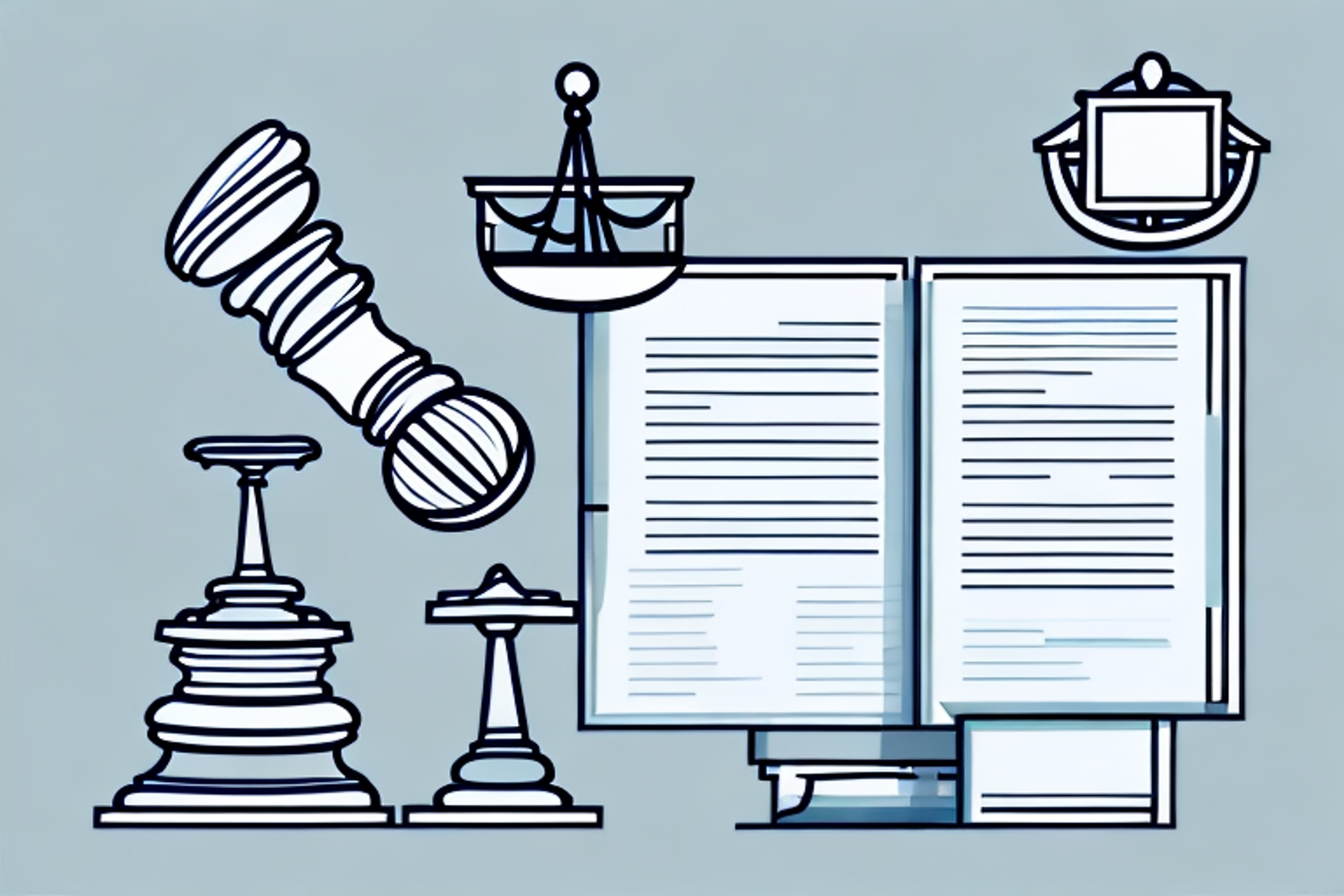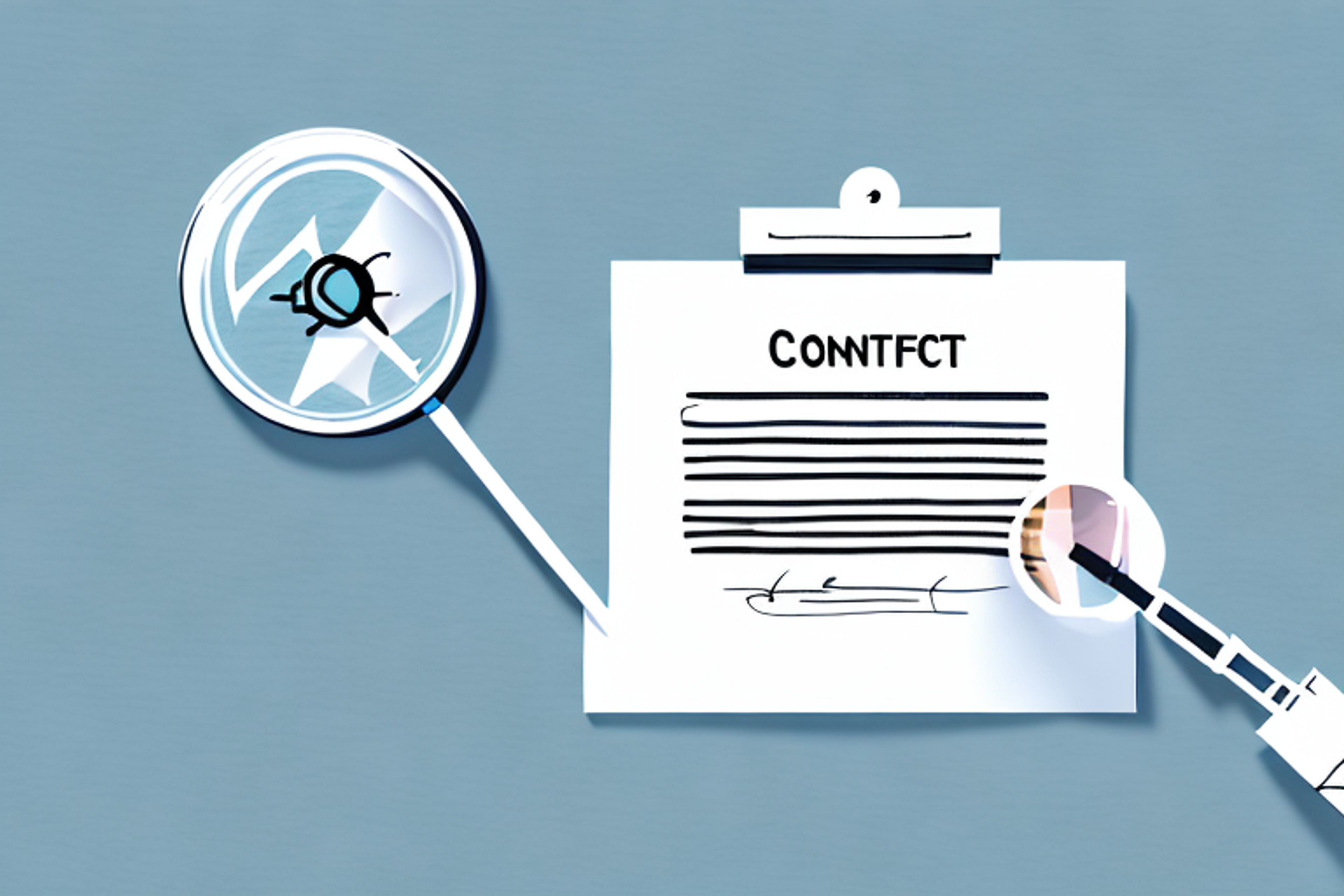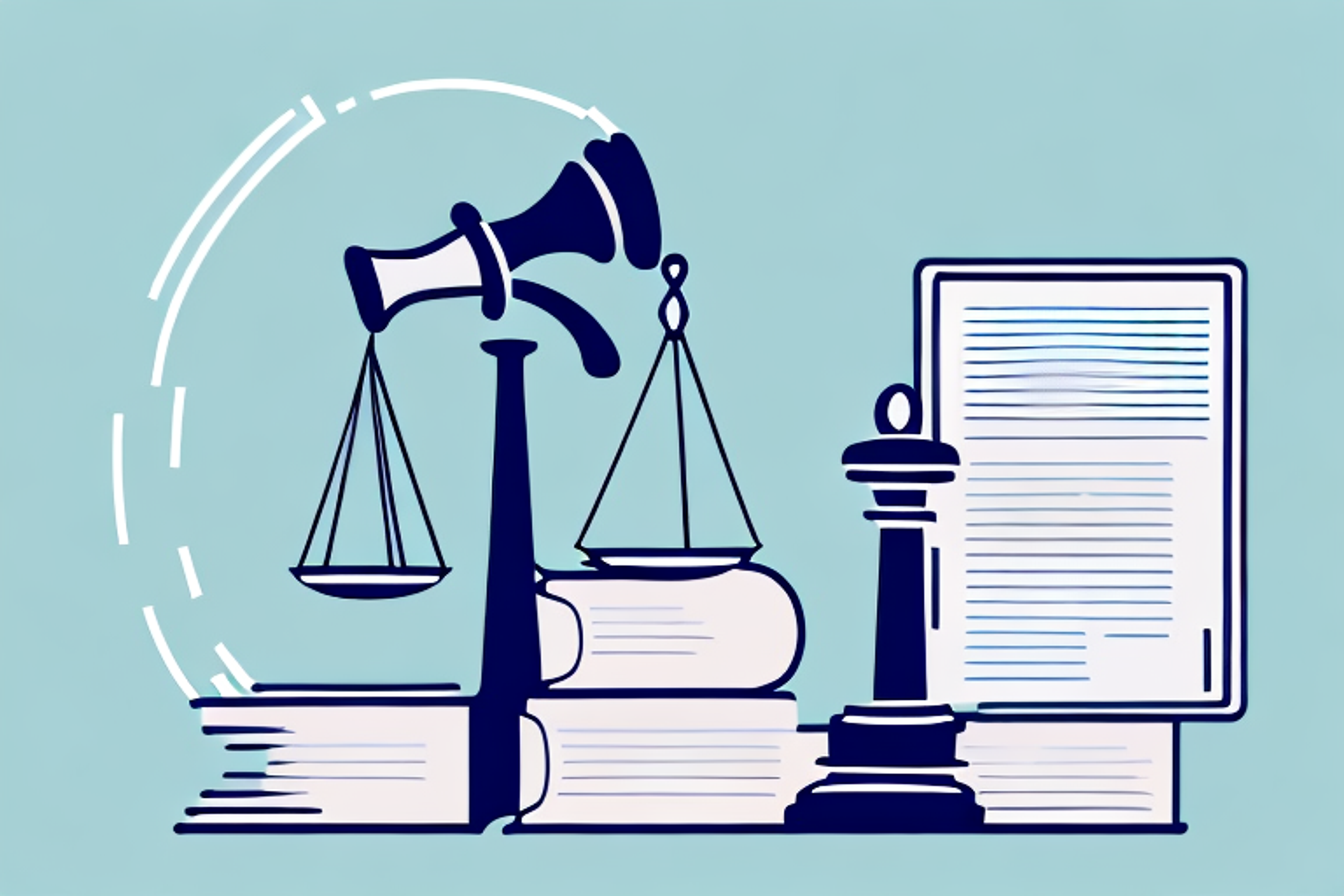Secrets to Successful Legal Writing: A Comprehensive Approach
Discover the secrets to successful legal writing with our comprehensive approach.
Posted April 10, 2025

Table of Contents
Free Event

Featuring Indrani S.
Law School App Office Hours with a Former Stanford AdCom Member
Starting Thursday, April 17
11:30 PM UTC · 45 minutes

Featuring Indrani S.
Legal writing is an essential skill for all legal professionals. Whether you are drafting a contract, a brief, or a memo, crafting a well-written and persuasive legal document is crucial to achieving your client’s goals. But what makes legal writing successful? In this article, we’ll explore the secrets to successful legal writing.
Why Legal Writing is Essential for Legal Professionals
Legal writing is the backbone of the legal profession. As a legal professional, your written work speaks for you and your client in the courtroom and beyond. Your writing must be clear, concise, persuasive, and accurate. It’s your writing that will win your cases, settle disputes, and establish credibility with your clients and colleagues. That’s why legal writing is an essential skill for all legal professionals.
Moreover, legal writing is not just limited to court documents and briefs. Legal professionals are required to write a variety of documents such as contracts, agreements, and legal opinions. These documents are crucial in establishing legal relationships and protecting the interests of clients. Therefore, legal writing skills are essential for drafting these documents with precision and clarity.
Additionally, legal writing is not just about using legal jargon and technical terms. It’s about communicating complex legal concepts in a way that is understandable to clients and non-legal professionals. Legal professionals must be able to translate legal language into plain language to ensure that their clients fully understand their legal rights and obligations. This requires excellent writing skills and the ability to convey information in a clear and concise manner.
Understanding the Purpose of Your Legal Writing
The key to successful legal writing is understanding its purpose. Knowing your audience, your goals, and your client’s expectations is crucial to crafting a compelling document. Your writing must be tailored to your audience, which may include judges, arbitrators, opposing counsel, or clients. It must also serve your goals, whether they are persuading the court to rule in your favor, convincing opposing counsel to settle, or advising your client on legal matters. Understanding these goals will help you write with purpose and clarity.
Additionally, it is important to consider the context in which your legal writing will be presented. Will it be in a formal court setting, or in a more casual negotiation? Will it be read by multiple parties, or just one? Understanding the context can help you determine the appropriate tone and level of formality for your writing. It can also help you anticipate potential objections or counterarguments and address them preemptively in your writing.
Crafting a Strong Introduction to Your Legal Writing Piece
The introduction of your legal writing piece is your first chance to make a good impression. A strong introduction should grab your reader’s attention and set the stage for the rest of your document. Start with a hook, such as a quote or an interesting fact. Then, provide a brief overview of the issues at hand and your client’s position. Finally, preview your argument and what you hope to accomplish. A well-crafted introduction can set the tone for a successful legal writing piece.
It is important to note that the tone of your introduction should match the tone of your overall legal writing piece. If you are writing a persuasive argument, your introduction should be persuasive as well. If you are writing a more informative piece, your introduction should be informative and set the stage for the information to come. Additionally, be sure to keep your audience in mind when crafting your introduction. Consider their level of knowledge on the topic and what information they may need to understand your argument. By taking these factors into account, you can create an introduction that not only grabs your reader’s attention but also sets the stage for a successful legal writing piece.
Developing a Clear and Concise Argument in Your Legal Writing
The heart of any legal writing piece is the argument. Your argument must be clear, concise, and persuasive. Begin by outlining your key points and supporting evidence. Then, organize your argument logically, using headings and subheadings to guide your reader. Use plain language and avoid legalese whenever possible. Be sure to cite your sources appropriately and provide a strong analysis of the legal issues at hand.
Another important aspect of developing a clear and concise argument in your legal writing is to anticipate counterarguments. Consider the potential weaknesses in your argument and address them head-on. This will demonstrate to your reader that you have thoroughly considered all sides of the issue and have a strong understanding of the law.
Additionally, it is important to keep your audience in mind when crafting your argument. Consider who will be reading your writing and tailor your language and tone accordingly. For example, if you are writing for a judge, you may want to use more formal language and structure your argument in a way that is easy for the judge to follow and understand.
Incorporating Supporting Evidence in Your Legal Writing
Supporting evidence is essential to a persuasive legal argument. Use relevant cases, statutes, and regulations to support your claims. Avoid using extraneous information and stick to the facts that are relevant to your case. Be sure to analyze your evidence and explain how it supports your argument. Use quotations sparingly and always cite your sources correctly.
When selecting supporting evidence, it is important to consider the credibility of your sources. Use reputable sources such as peer-reviewed articles, official government documents, and well-respected legal cases. Avoid using sources that are biased or unreliable, as this can weaken your argument.
Additionally, it is important to consider the context in which your evidence is presented. Make sure to explain how your evidence relates to the specific legal issue at hand. This will help the reader understand the relevance of your evidence and how it supports your argument.
Avoiding Common Pitfalls in Legal Writing
Legal writing can be complex, and there are many common pitfalls to avoid. Watch out for vague or ambiguous language, and always define your terms clearly. Avoid using passive voice, which can make your writing weak and confusing. Be wary of making unsupported assertions or omitting key facts. Finally, proofread your work carefully to catch errors in spelling, grammar, and punctuation.
Another important aspect of legal writing is to ensure that your arguments are well-supported by evidence and legal authority. This means conducting thorough research and citing relevant cases, statutes, and other sources of law. It is also important to consider the counterarguments and address them in your writing. By anticipating and addressing potential weaknesses in your arguments, you can strengthen your overall position and increase the persuasiveness of your writing.
Tips for Organizing Your Legal Writing Effectively
Organizing your legal writing effectively is crucial to your success. Use headings and subheadings to guide your reader, and break your argument into clear and concise sections. Start with a strong introduction and end with a clear conclusion that summarizes your key points. Use transitional phrases to link your ideas together and create a logical flow. Finally, make sure that your writing is visually appealing and easy to read.
How to Use Language Effectively in Your Legal Writing
Effective language use is essential to your success in legal writing. Be concise, clear, and plain-spoken in your language. Avoid complex sentences that may confuse your reader. Use active voice to make your writing clear and direct. Be wary of using jargon or legalese, which can make your writing inaccessible to non-lawyers. And finally, be sure to use accurate and appropriate language when discussing sensitive or controversial issues.
Strategies for Editing and Revising Your Legal Writing
Editing and revising your legal writing is an essential part of the writing process. Start by reviewing your work for spelling, grammar, and punctuation errors. Then, read through your writing to make sure that it is clear, concise, and well-organized. Pay attention to your word choice, and make sure that your language is appropriate for your audience. Consider sharing your writing with a colleague or mentor for feedback. Finally, take the time to make revisions based on their feedback before you submit your final draft.
Tailoring Your Legal Writing to Different Audiences
As a legal professional, you will need to write for a variety of audiences. Whether you are writing for a judge, a client, or opposing counsel, it’s essential to tailor your writing to their specific needs and interests. Consider their level of understanding, their legal expertise, and their needs and goals. Use language that is appropriate for their audience and avoid using technical jargon or legalese that they may not understand.
How to Write Persuasively in a Legal Context
Writing persuasively is a critical skill in legal writing. To be persuasive, you must support your argument with strong evidence, analyze the legal issues carefully, and present your ideas clearly and convincingly. Use rhetorical devices like repetition and parallelism to emphasize your key points. Consider using emotional appeals sparingly to help your reader relate to your client and their situation. Finally, anticipate counterarguments and address them proactively in your writing.
Using Technology to Enhance Your Legal Writing Process
Technology can be a valuable tool for legal professionals. Consider using legal writing software like LexisNexis or Westlaw to help you research and analyze legal issues. Use grammar and spell-checking software to catch errors in your writing quickly. Collaborate with colleagues using cloud-based document-sharing services like Google Drive or Dropbox. Be sure to use technology ethically and responsibly and always protect your client’s confidential information.
Best Practices for Collaborating on Legal Writing Projects
Collaborating on legal writing projects can be challenging, but it can also help produce stronger and more persuasive documents. To collaborate effectively, set clear goals and expectations upfront, and assign tasks based on each author’s strengths and expertise. Use cloud-based document sharing services to collaborate virtually on the same document. Use version control to track changes and ensure that all authors are working from the same version of the document. Finally, discuss any disagreements or issues as they arise, and work together to find a solution.
The Importance of Proper Citation and Referencing in Legal Writing
Proper citation and referencing are critical to the integrity of legal writing. Be sure to cite your sources accurately and appropriately throughout your writing. Use footnotes or endnotes to provide additional information or explain your legal analysis. Use legal citation standards like Bluebook or ALWD to ensure that your citations are consistent and correct. Failing to cite your sources accurately can damage your credibility and undermine your argument.
In conclusion, successful legal writing requires a comprehensive approach that incorporates clear and concise language, strategic organization, persuasive argumentation, and thorough research and analysis. By following these secrets to successful legal writing, you can develop your skills and produce high-quality legal documents that achieve your client’s goals.











